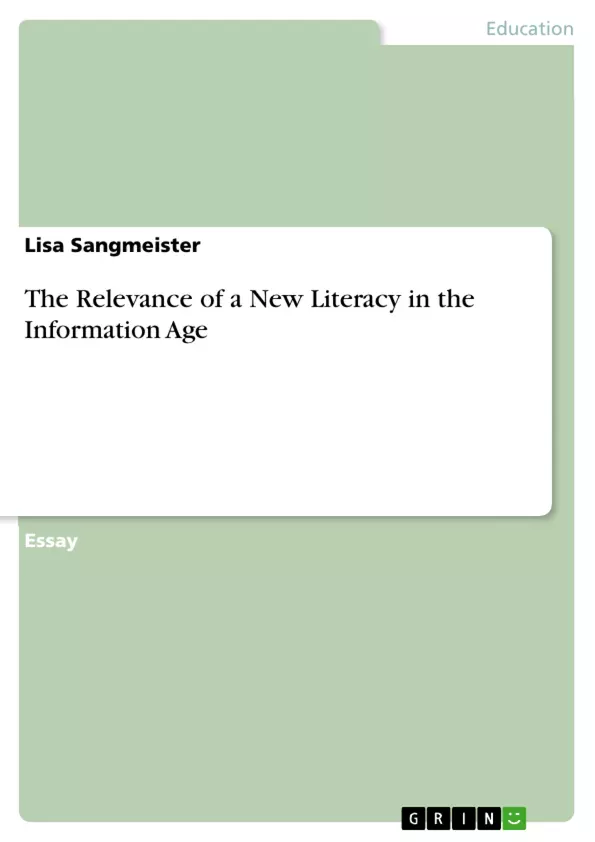“Talk Back” – The Relevance of a New Literacy in the Information Age
What are the main objectives of education? Pupils should develop skills which enable them to learn independently as a basis for lifelong learning. An important factor of lifelong learning is the ability to filter information and to evaluate them critically. This aspect of education, however, has become increasingly difficult.
Inhaltsverzeichnis (Table of Contents)
- Academic Writing
- Media Education in the Information Age
- Objectives of Media Education
- The Action Learning Model
- Media Education in Elementary School
Zielsetzung und Themenschwerpunkte (Objectives and Key Themes)
This essay explores the significance of media education in preparing students for life in the Information Age. It aims to define the main objectives of effective media education, introduce the "Action Learning model" for deeper media understanding, and present a concrete example of media education in an elementary school classroom.
- Importance of media literacy for lifelong learning
- Shift from print culture to image culture
- The "Action Learning Model" for media education
- Critical media literacy and the analysis of advertisements
- Integration of media education into school curricula
Zusammenfassung der Kapitel (Chapter Summaries)
The essay begins by emphasizing the crucial role of media literacy in equipping students to navigate a world saturated with information. It emphasizes the need to move beyond merely teaching technical aspects of media and to foster critical thinking skills. The "Action Learning Model" is then presented as a comprehensive framework for media education, guiding students through stages of awareness, analysis, reflection, and action. The essay culminates with a specific example of how media education can be implemented in a fourth-grade classroom through the analysis of advertisements, encouraging students to actively engage with and critique media messages.
Schlüsselwörter (Keywords)
This essay focuses on the concept of media literacy, particularly in relation to the Information Age. Key themes include the development of critical thinking skills, the "Action Learning Model", the analysis of advertisements, and the integration of media education into different school subjects. The example of the "Elementary Bubble Project" serves as a practical illustration of how to initiate critical media literacy in young children.
Frequently Asked Questions
What is the main objective of media education in the Information Age?
The primary goal is to develop critical thinking skills that allow students to filter, evaluate, and analyze information independently, fostering a basis for lifelong learning.
What is the "Action Learning Model" in media education?
It is a framework that guides students through four stages: awareness, analysis, reflection, and action, to achieve a deeper understanding of media messages and their impact.
Why is critical media literacy important for young children?
As society shifts from a print to an image-based culture, children need skills to navigate advertisements and digital content to avoid being passive consumers of manipulated information.
How can media education be integrated into elementary schools?
It can be integrated through projects like analyzing TV advertisements in class, helping students identify persuasive techniques and the difference between reality and media construction.
What is the "Elementary Bubble Project"?
It is a practical example of a classroom initiative designed to initiate critical media literacy in young children by examining the "bubbles" of information they encounter daily.
Does media education only focus on technical skills?
No, effective media education moves beyond technical usage to focus on the social, ethical, and critical dimensions of how media shapes our perception of the world.
- Quote paper
- Lisa Sangmeister (Author), 2010, The Relevance of a New Literacy in the Information Age, Munich, GRIN Verlag, https://www.grin.com/document/150864



